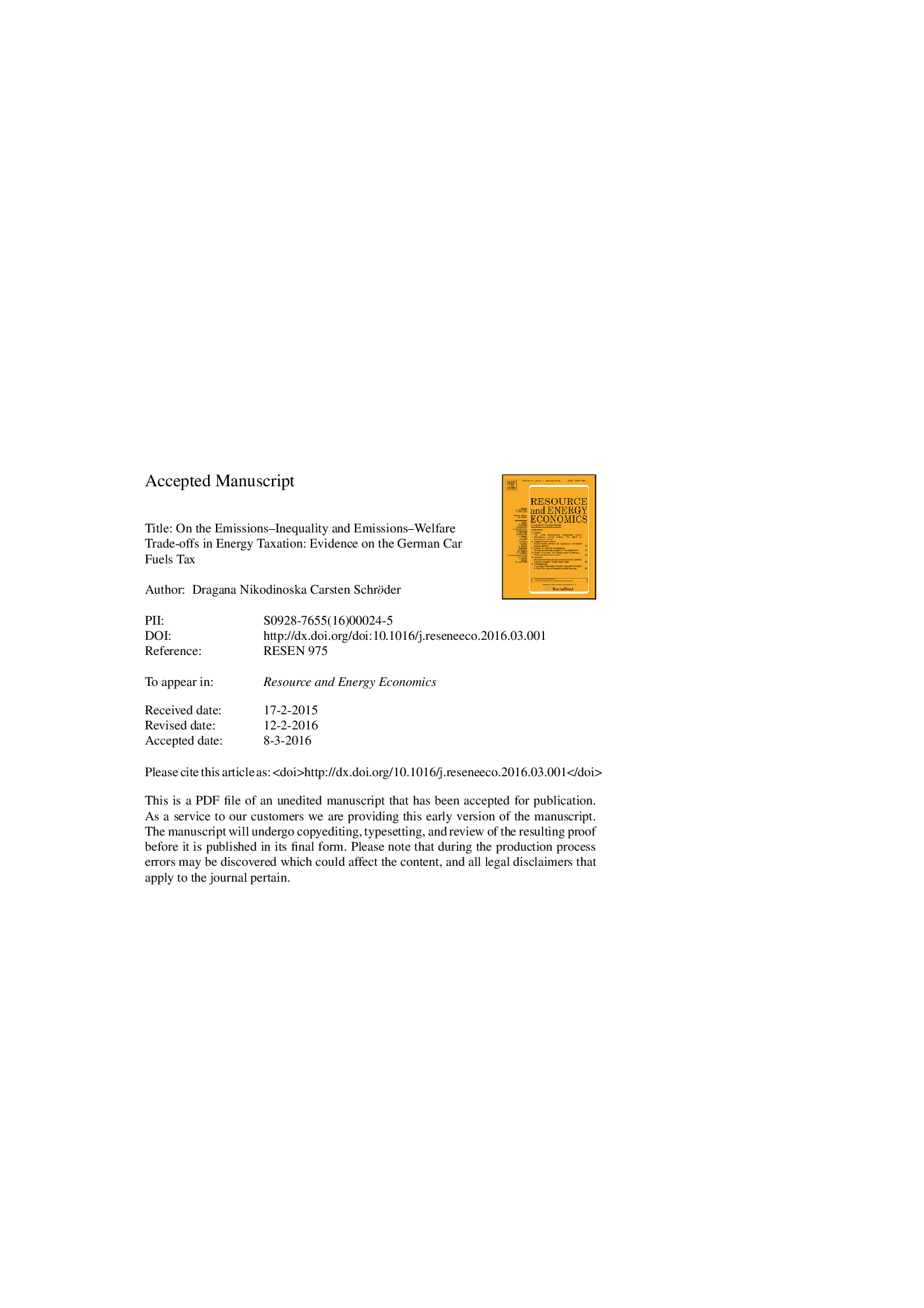| Article ID | Journal | Published Year | Pages | File Type |
|---|---|---|---|---|
| 7387479 | Resource and Energy Economics | 2016 | 58 Pages |
Abstract
By using estimates from a Demographically-Scaled Quadratic Almost Ideal Demand System (DQUAIDS), we investigate how the German car fuels tax changes the private households' CO2 emissions, living standards, and post-tax income distribution. Our results show that the tax implies a trade-off between the aim to reduce emissions and vertical equity, which refers to the idea that people with a greater ability to pay taxes should pay more.
Keywords
Related Topics
Physical Sciences and Engineering
Energy
Energy (General)
Authors
Dragana Nikodinoska, Carsten Schröder,
